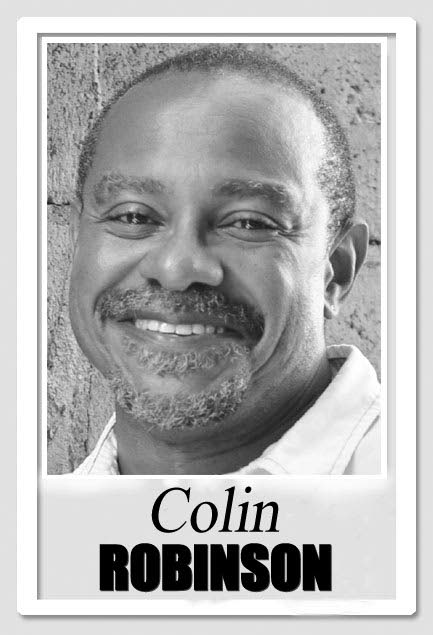Leggo to Lehgo

“We doh see skin. We doh see colour. We see strength. We see power…Once he is breathing on dis earth he is ma brother…Family doh ever fraid to have your back at all time.”
For the first time since we changed the rules in 1976 to deny Antiguan Short Shirt’s insurgent Tourist Leggo Road March honours here, Vincentian Skinny Fabulous made history this Carnival, winning the title with his collaborative unity anthem, Famalay, built on Dominican Krishna Lawrence’s bouyon rhythms.
Since Ultimate Rejects’ Full Extreme stormed away with it in 2017, what makes Road March here has been in delightful flux, Jelani Shaw’s Kes-voiced Savannah Grass giving Skinny, Machel and Bunji a run this Carnival.
Back in the days of Poorsah and Becket, St Vincent’s road march was guaranteed to be a TT Carnival hit. Small Pin and Hairy Bank’s sexual themes crossed over readily. Vincy tunes still score big in TT, but ingredients for road march there have become quite distinct from what makes a hit locally; Problem Child’s 2007 Party Animal blew up, but Skinny’s 2013 title made little dent on the road here.
That may be changing. On the heels of Fimba’s 2018 road march Funky Business, which took TT by storm well before 2019 Carnival, Luta (Rondy McIntosh)’s Lehgo Ting, which brought him road march victory last month, promises to do the same. In the tradition of Grenadian Mr Killa’s Run Wid It, which ran away with Soca Monarch, it’s a tuneless thing that suddenly takes you over after you’ve heard it in company a couple times.
Until you reach the third verse.
Wanski’s 2002 Antigua road march Mo Gyal ran into trouble in TT Carnival. Band designer Robert Solomon raised a stir. Even Calypso Rose spoke out. The singer lost a few corporate fete gigs. From its opening line, the song promoted a specific vision of Carnival:
“We doh want no chichi man inna de band fi Carnival. Come lewwe jump up. Mo gyal. Come lewwe wine up. Mo gyal…We doh want no violence inna de band when we jamming.” And there really wasn’t more to its lyrics other than this odd blaming of the victim.
Famalay collaborator Bunji Garlin, repeatedly troubled in his 2000s soca lyrics by same-sex desire, likewise found trouble with his bookings for 2014 Toronto carnival. A young TT immigrant, Adam Williams, had relentlessly engaged the city over its human-rights principles, citing Bunji’s 2005 Soca Monarch-winning tune. Blaze It Up’s engagement with homophobia is far more nuanced than either Eastern Caribbean road march. Closing out Bunji’s list of false friends, bacchanalists, cocaine snorters and clothesline thieves subject to “fire bun” are “some of dem big funny man who taking dem man over gyal.”
Williams pressured Toronto administrators into releasing Garlin’s statement that: “On a personal level I, Ian Alvarez, do not subscribe to anti-gay sentiments and am respectful of all peoples and communities,” and the tune is “not…intended to be offensive to any group, nor…an attack of anyone or any community.”
Buju Banton’s release from prison last year triggered fresh debates (some amusingly centred on me) over social and economic responses to lyrics like these, revealing that for a Caribbean LGBTI generation who have forgotten Boom Bye Bye, his lyrics symbolise something far more precious than the homophobia for which the tune became emblematic to mine and to LGBTI communities in Europe and North America, whose campaigns cost the Jamaican music industry millions.
Jamaican dancehall is witnessing fascinating contemporary discourse over same-sex sexuality, some around Shenseea’s Blessed music video with Tyga, where she appears in lingerie and another woman’s arms in the opening frames. Tony Rebel has declared LGBTI dancehall artists should come out.
But the Eastern Caribbean’s popular music artists seem to be moving in the opposite direction, eager to take over the mantle of musical homophobia. Grenada’s Killa and Lavaman are swept up this week in rumours over sudden cancellations of their appearances with an LGBTI-friendly Notting Hill band.
And Luta has won SVG’s road march without noticeable public commentary over the verse that stopped me in mid-lehgo:
“Be careful, dan, it have some man dressing like woman in the band. And when you feel like you wining on a woman, your body wining up on top another man…So let we burn them. Everybody in the band, just let we run them. Sexy girl we want to run the chichiman them. All the real gyal is just up allyou hand them.”
I’m sorry for Luta’s past Carnival experience of what he calls “gender pollution.”
Writer Kei Miller made news at Carifesta this week comparing homeless gay men whose decision to lehgo in stush Kingston Carnival resulted in bottle-pelting to the jamettes who created Trinidad’s Carnival in the 1830s.
A character in Lloyd Newson’s 2008 DV8 Physical Theatre choreotheatre production To Be Straight With You (based on 85 interviews with British people) gives voice to the impulse I’ve always felt – far from boycotts or condemnations – hearing tunes like Wanski’s and Luta’s.
To legho ting like a chichi man, I’m looking forward to hearing it in 2020 Carnival.


Comments
"Leggo to Lehgo"